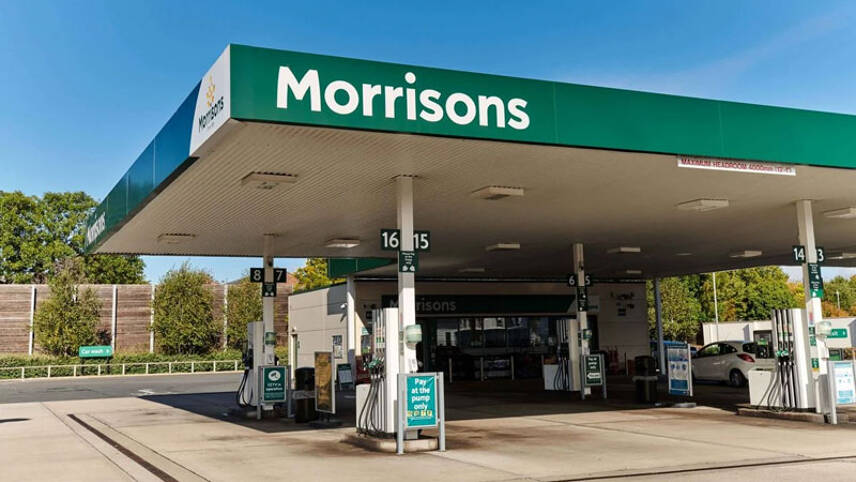Register for free and continue reading
Join our growing army of changemakers and get unlimited access to our premium content

Image: Morrisons
The two firms have entered into a new strategic partnership touted as a milestone in preparing the UK’s network of public EV chargers for an outright ban on new petrol and diesel car and van sales in 2035.
Under the deal, Motor Fuel Group will acquire 337 of Morrisons’ petrol forecourts and will set about installing 800 ultra-rapid EV chargers within five years. The 150kW chargers will be suitable for all models and can add up to 100 miles of range in ten minutes.
Motor Fuel Group is also proposing improvements to the convenience proposition of the forecourts and will add valeting facilities to some locations.
Motor Fuel Group already operates EV charging infrastructure at more than 1,300 sites across the UK and has set aside £400m for further additions to its own forecourts, excluding the former Morrisons sites, this decade.
Morrisons, for its part, will take a minority stake of around 20% in Motor Fuel Group.
Motor Fuel Group chief executive William Bannister said the partnership is “anchored in the potential for us to accelerate the roll-out of Ultra-Rapid EV charging infrastructure across the UK while also giving customers a first-class retail offer”.
He said: “We will be there to serve and power our customers, regardless of what car they drive in the years and decades ahead as we play a key role in keeping the country and its economy moving.”
Strategic expansion
The UK Government is aiming for Britain to host at least 300,000 public EV charging points by the end of the decade. Retailers are aiming to take a slice of the action along with pubs and restaurants, hoteliers, service station operators and other businesses.
The Department for Transport (DfT) has built its rapid public EV charger deployment strategy – backed by some £1.5bn – around motorway-based infrastructure and chargers within local communities, with installations supported by councils.
But other locations are benefitting too, to a lesser degree. This week, the DfT expanded its workplace charging scheme to state-funded schools and other education providers. Grant-funded chargers can be made available to staff, and/or the locations may choose to generate revenue by offering paid-for public charging services.


Do we have batteries that will not degrade more rapidly than the current slower charging variety?
I believe that such a feature will be decisive in the success of theses systems